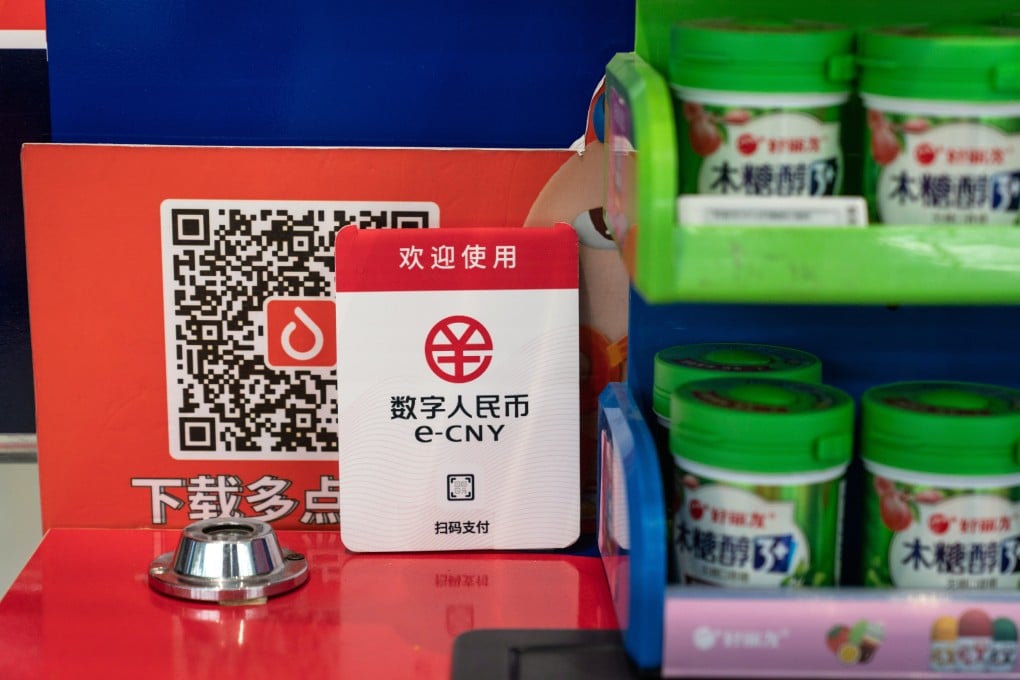China’s digital yuan not a backup amid a financial crisis, and there’s ‘no incentive’ to move money
- China has already launched pilot schemes for its e-CNY in 11 cities plus inside venues used for the ongoing Winter Olympics
- More than 260 million virtual wallets being used as of the end of December, with a total of 470 million yuan (US$73.9 million) currently held electronically

China will not be pressured into raising the limit on the amount of money that can be held within its central bank digital currency even in the face of a financial crisis, according to the head of its e-CNY department within the central bank.
In China, bank deposits of up to 500,000 yuan (US$78,540) are protected under an insurance system, meaning customers would not need to move their money from traditional banks to the digital yuan in the event of a financial crisis or bank run, according to Mu Changchun, director general of the Digital Currency Institute at the People’s Bank of China.
The e-CNY will not have any material negative impact on the current financial system
“The e-CNY will not have any material negative impact on the current financial system, and we don’t expect during a stress scenario that we will need to remove those caps,” Mu said during an online panel discussion held by the Washington-based think tank Atlantic Council’s GeoEconomics Centre on Wednesday.
“For the general public, even in a stressful scenario, the general public will have no incentive to move a large chunk of their deposits from the financial intermediaries or the financial institutions to the e-CNY system.
“Politically, we don’t have the pressure to remove the restrictions. Personally, I’m very confident we can guarantee or safeguard those restrictions even in a very difficult situation.
“We adopt the policy that we mainly pay no interest. We could also introduce a potential fee to charge for large or frequent withdrawals from the e-CNY system during distress or stressful scenarios.”